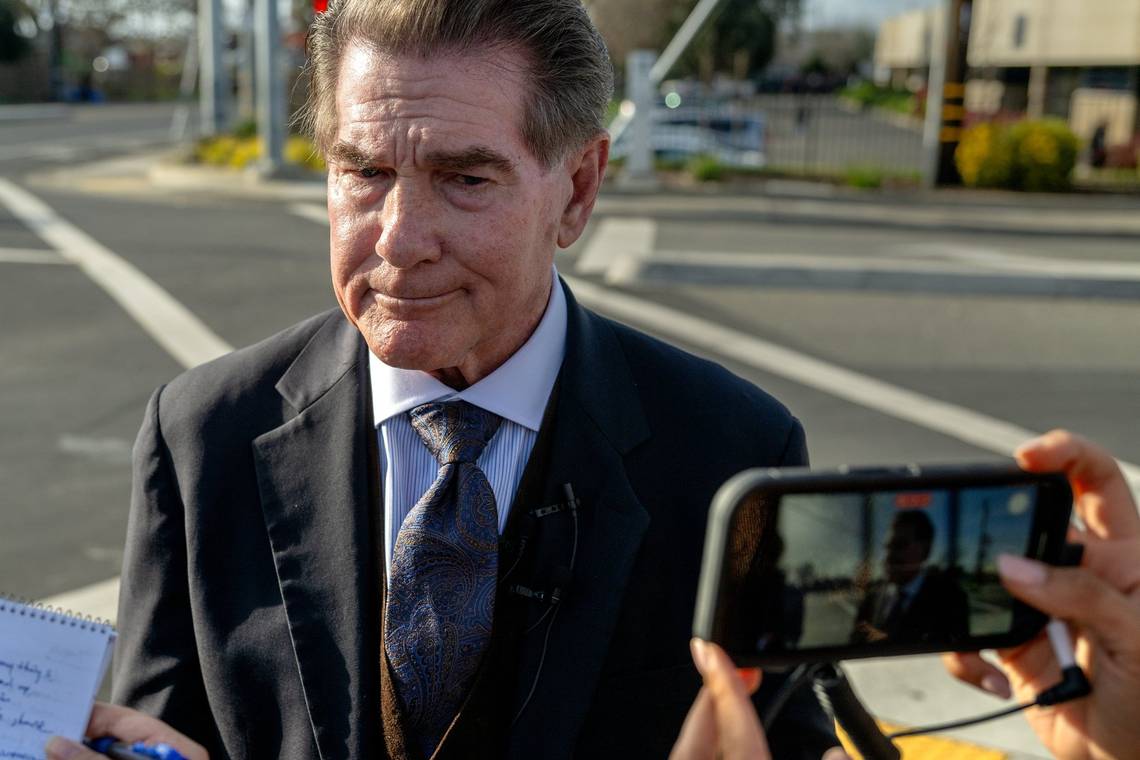Such a large tax liability on a federal financial disclosure form from a senator or a candidate is extremely rare, said Robert Maguire, research director at the Citizens for Responsibility and Ethics in Washington, a nonpartisan watchdog group.
The tax liability is the latest development involving the financial controversy Garvey has endured in the past. It’s unclear how he incurred these tax liabilities.
The Garvey campaign did not respond to a request for answers to several questions about the disclosure statement.
The statement, filed with the Senate Office of Public Records in February, shows Garvey incurred between $250,001 and $500,000 in federal tax liability in 2011.
It also said that he owes $100,001 to $250,000 to the California state government, also for taxes incurred in 2011.
The statement says he owes 8% interest on the balance due.
The disclosure statement rules require that the candidate “report the highest amount owed during the preceding calendar year and current calendar year through the date of filing.”
The statement does not specify the source of the taxes or whether the taxes are personal or business liabilities.
Garvey has had some financial missteps over the past 30 or so years, but it’s unclear which if any of his financial dealings are involved here.
Garvey has been named in several state and federal tax liens, according to a search of public records and credit headers, part of a credit report that usually gives someone’s name and other identifying information.
The search, while detailing how Garvey owed substantial amounts across California, did not always say whether the lien has been paid or released or is still open.
A lien is a government claim against a person’s property when they have not paid their taxes. It can be removed if the debt is paid or a payment plan is worked out. If taxes are not paid, the government can take the assets.
The former Los Angeles Dodgers and San Diego Padres baseball star retired from the game after the 1987 season. Since then, he has worked in several positions, including motivational speaker, broadcasting, marketing and other fields.
But he faced financial trouble.
In 2000, the Federal Trade Commission sued Garvey and the Garvey Management Group, owned by his wife Candace, claiming they were making false claims about a weight-loss product they touted in infomercials.
Four years later, a federal appeals court found Garvey and the company not liable for the claims,saying they had no actual knowledge that their claims were false.
In 2006, the Los Angeles Times reported “Garvey and his wife, Candace, have neglected bills large and small, leaving dozens of people who either worked for them or sold them merchandise wondering if they were ever going to get paid.”
Garvey told the Times that the debt was caused by a mix of tax liabilities, financial support for most of his children and expensive personal and business-related legal battles.
The disclosure form requires that Garvey, his wife and dependent children list any assets with a value over $1,000 or generated income of more than $200.
Garvey lists income from his current assets as between $65,533 and $135,530, most of it from the Major League Baseball Players Pension Plan. It lists the overall value as “unascertainable.”
Garvey, who had never run for public office, is opposing Rep. Adam Schiff, D-Burbank, in the November general election for the U.S. Senate seat now held by Sen. Laphonza Butler, a Democrat.
Gov. Gavin Newsom appointed Butler to the seat last year to replace Sen. Dianne Feinstein, a Democrat who died in September. She had held the seat since 1992.
While Schiff is a strong favorite, Garvey has emphasized his background as a team player with a history of bringing people together. While explaining that he’s a conservative, he’s carefully avoided expressing any strong ideology and has not said whether he’d vote for Donald Trump for president this fall.
